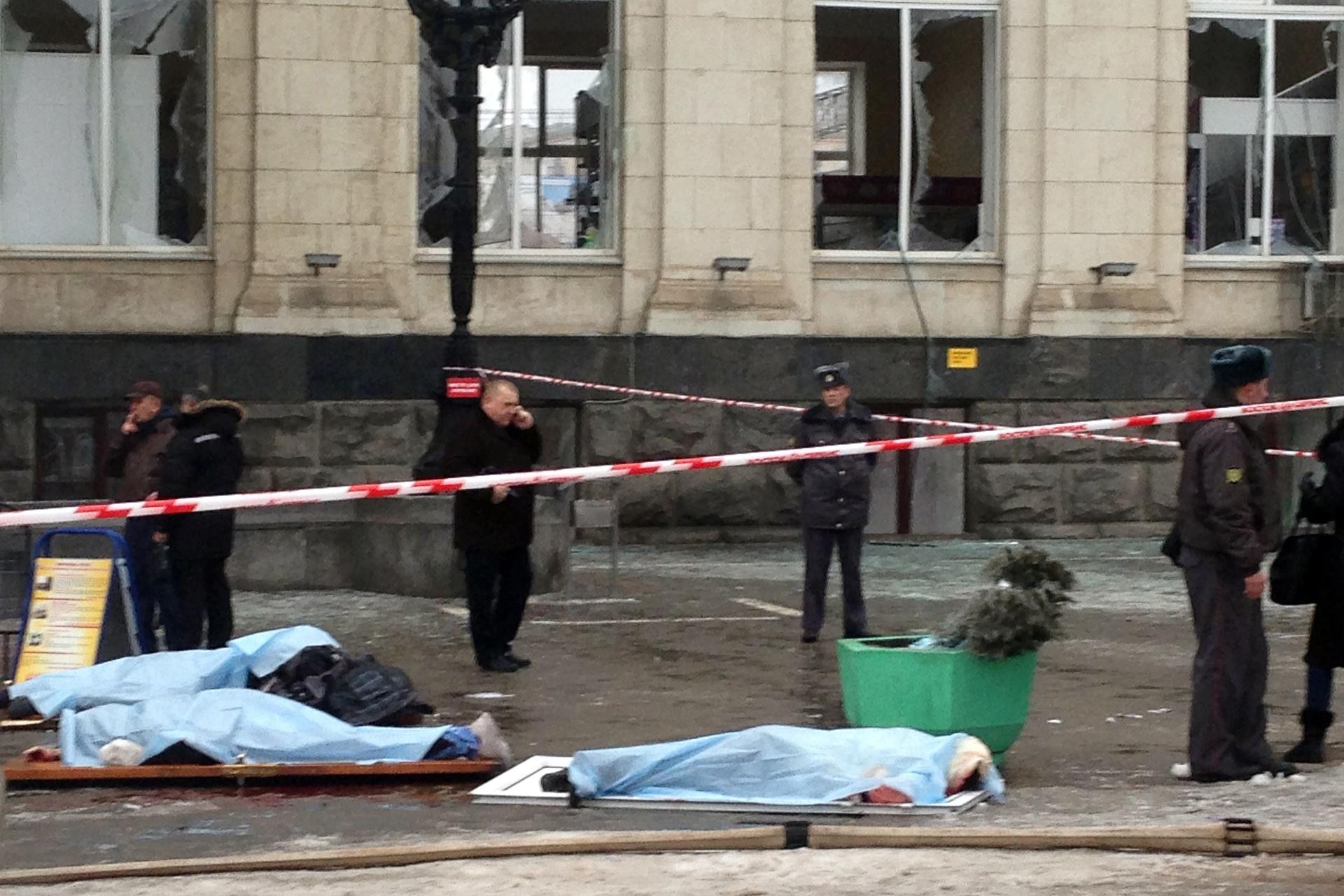At least 17 killed in suicide bombing at train station in Russia (VIDEO)
The covered bodies of victims lie on the ground as Russian security personnel inspect the damage at a train station following a suicide attack in the Volga River city of Volgograd on Dec. 29, 2013.
At least 17 people were killed on Sunday when a female suicide bomber detonated an explosive at a train station in southern Russia, heightening concerns about terrorism ahead of February's Olympic games in Sochi.
The bomber was identified as Oksana Aslanova, 26.
Reports say she had been married to a deceased militant warlord, and had been on a wanted list since June 2012.
Women who seek to avenge the deaths of their family members in the North Caucasus by becoming suicide bombers are known as "black widows" in Russia.
PHOTO: Preliminary identified suicide bomber Oksana Aslanova http://t.co/MDKXpQYui1 #Volgograd pic.twitter.com/alQmBi2KSy
— RT (@RT_com) December 29, 2013
Authorities found what they say was the bomber's severed head.
Some 34 people, including a 9-year-old girl, were wounded in the second deadly attack in Russia in three days.
Russian President Vladimir Putin has ordered security to be tightened at train stations and airports.
More from GlobalPost: Car bomb kills 3 in southern Russia
The National Anti-Terrorist Committee said the explosion, in the entrance hall of the central railway station in the city of Volgograd, was an act of terror and that a criminal investigation had been launched.
TV footage showed a massive orange fireball filling the hall and smoke billowing through shattered windows.
The bomb was said to have packed 22 pounds of TNT.
"People were lying on the ground, screaming and asking for help," eyewitness Alexander Koblyakov told Rossiya-24 TV.
No group claimed immediate responsibility for the attack.
More from GlobalPost: Russian lawmakers approve new anti-terrorist bill
On Friday, a car bomb killed three people in the southern Russian city of Pyatigorsk, 170 miles east of Sochi. And in October, another female suicide bomber was blamed for a bus explosion in Volgograd that killed five people.
Sunday's attack was the deadliest in Russia's heartland since January 2011, when Islamist insurgents killed 37 people at a Moscow airport.
"There can be no justification for such barbarous attacks," NATO Secretary General Anders Fogh Rasmussen said Sunday. "NATO and Russia stand together in the fight against terrorism., including by working together on technology to prevent attacks on public transport systems."
The story you just read is accessible and free to all because thousands of listeners and readers contribute to our nonprofit newsroom. We go deep to bring you the human-centered international reporting that you know you can trust. To do this work and to do it well, we rely on the support of our listeners. If you appreciated our coverage this year, if there was a story that made you pause or a song that moved you, would you consider making a gift to sustain our work through 2024 and beyond?
